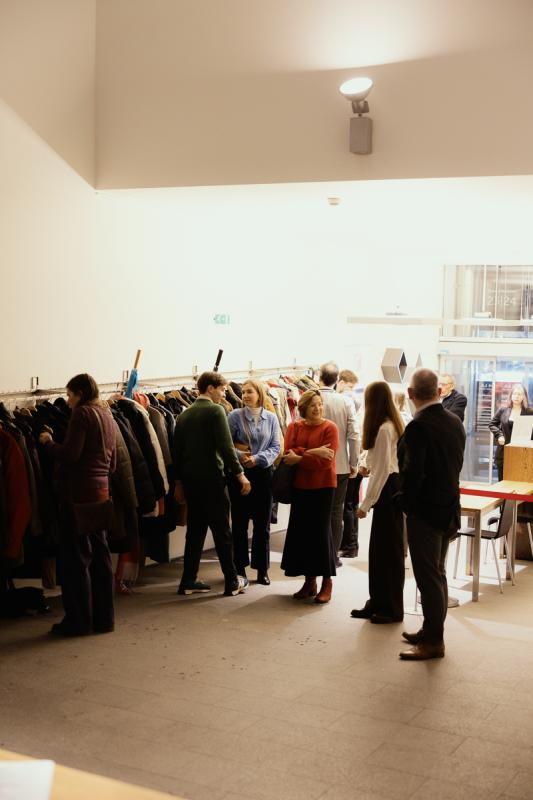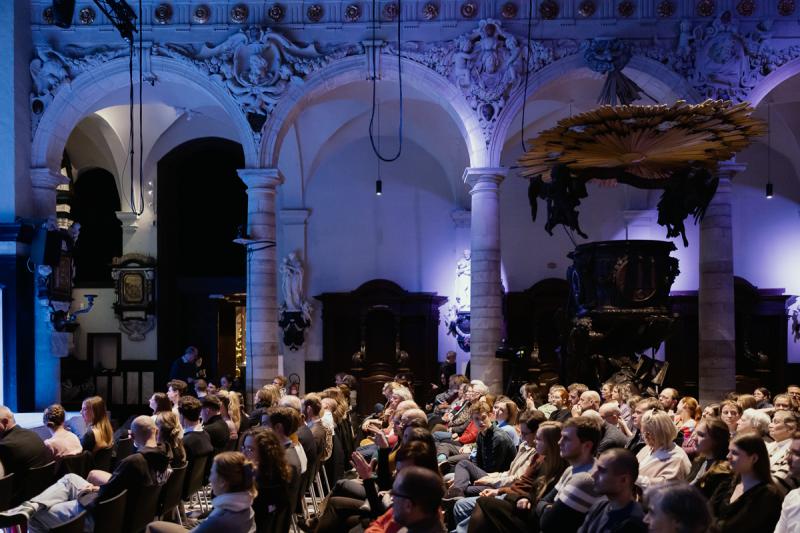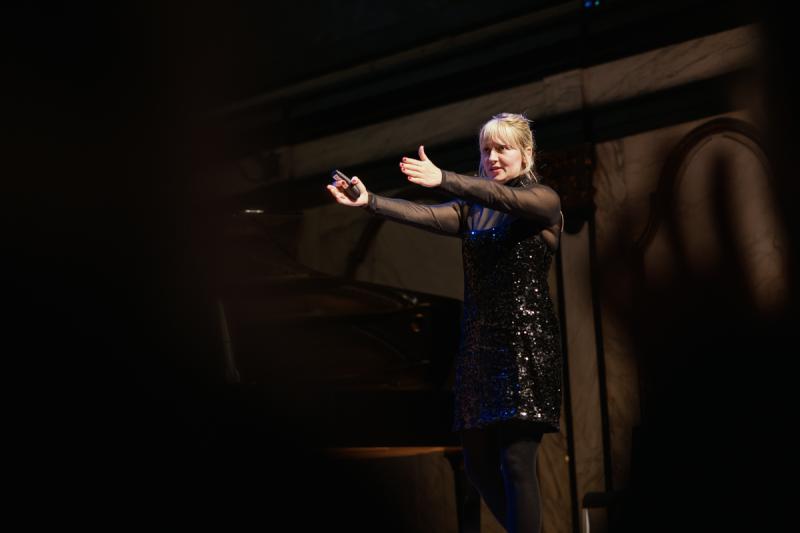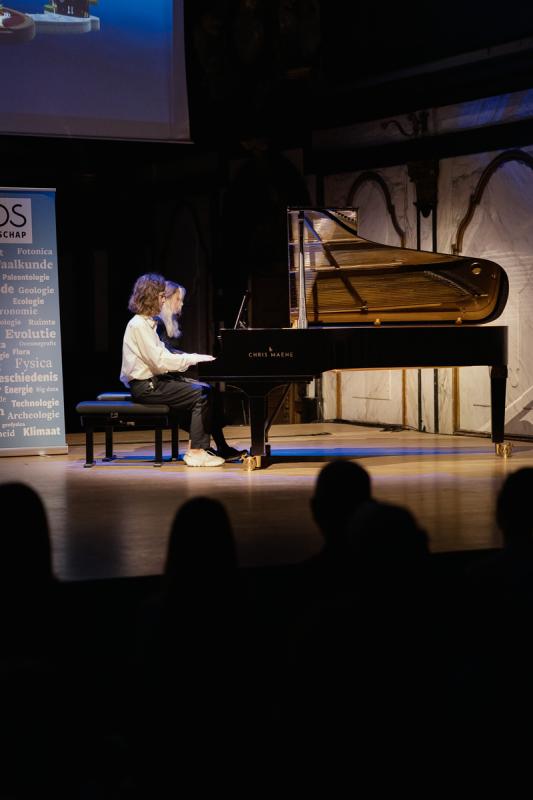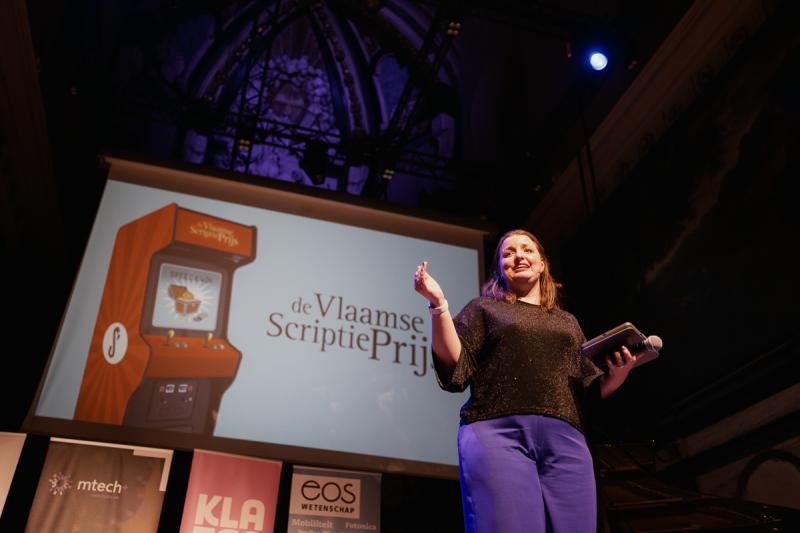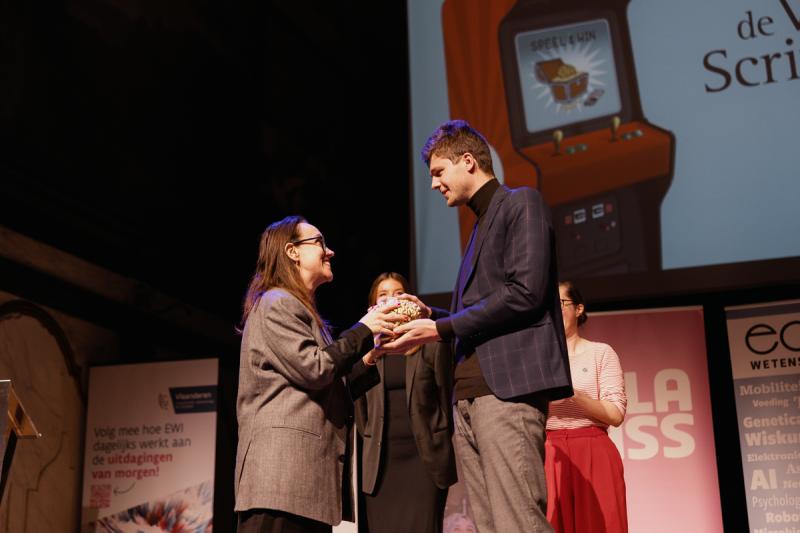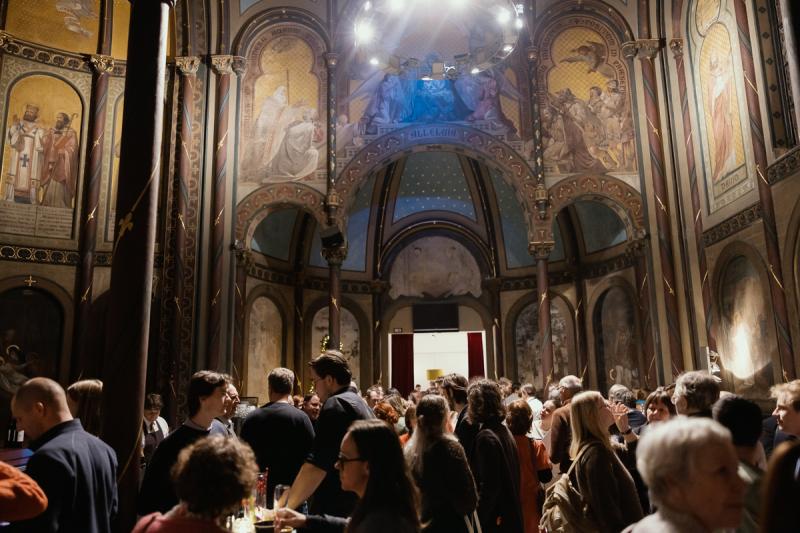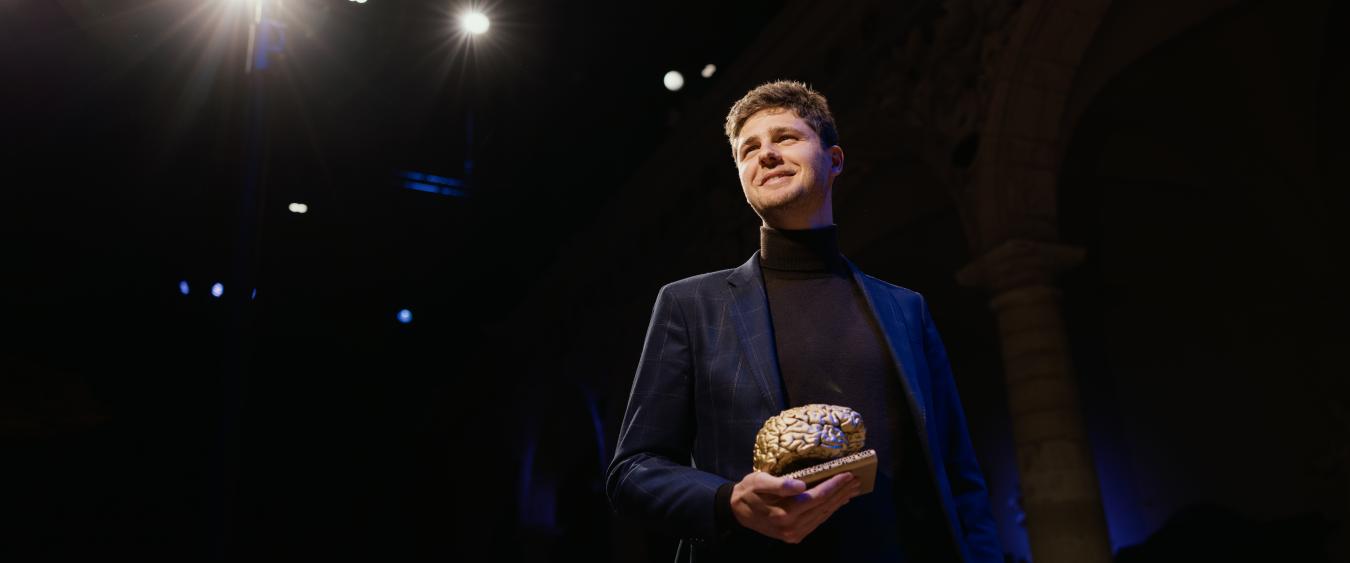
Nicolas De Wispelaere wins the Flemish Thesis Prize 2023
For his master's thesis, architect Nicolas De Wispelaere (UGent) dreamed of more bathing water for Brussels. To this end, he designed three new swimming facilities at existing locations in the metropolis: in the Résidence Palace, under the tracks of the Brussels South Train Station and on the playgrounds of Brussels schools. His thesis earned him the Flemish Thesis Prize, worth 2,500 euros.
Every year SciMingo vzw searches for strong and newsworthy theses by Flemish graduates. Nicolas De Wispelaere was crowned this year's winner at AMUZ Antwerp. He was one amongst no fewer than 363 entries.
Not enough bathing water
It started with a pressing problem: Brussels does not have enough bathing water. The capital has only twelve municipal swimming pools, which is not enough to provide all 1.2 million Brussels residents with bathing water. Brussels schoolchildren can therefore only swim for an average of eight hours per year. “Swimming pools are not only an added value for recreation and sports, but they also play a role in rehabilitation projects, mental healthcare and they provide cooling during the heat waves that are increasingly ravaging our country,” says De Wispelaere. “Swimming pools can play an active social role within a neighborhood that is accessible to many groups. When we build a new swimming pool in a big city, we are actually designing a miniature metropolis.”
When we build a new swimming pool in a big city, we are actually designing a miniature metropolis
Paris as swimming champion
A lack of space was no obstacle for De Wispelaere. He travelled to Paris for his thesis to see how this big city is doing better than Brussels. “The swimming pools there are fully integrated into the urban fabric. The lack of space offers an opportunity for a unique swimming experience.” For example, there is a swimming pool under the central metro station, within social housing buildings and in a school. “The collision of the swimming pool with other metropolitan actors often produces surprising architectural solutions.” Armed with a camera and his sketchbook, De Wispelaere used the swimming pools as an example for his own designs.
Three proposals for Brussels
De Wispelaere used existing infrastructure, vacant spaces and mobile solutions for his designs. “For example, we could open the swimming pool at the Résidence Palace in the Wetstraat to the general public.” Another proposal was to house a swimming pool in the Quadrilatères, two vacant halls on the railway embankment of the Brussels North-South connection. “A bathhouse could become an oasis of peace in an otherwise busy location.” To tackle the problem of a shortage of bathing water for schoolchildren, De Wispelaere ultimately came up with a mobile swimming pool: a swimming pool can unfold from a truck into an energy-efficient learning pool. “That idea comes from a similar program that the French government launched in the 1970s to temporarily provide swimming water to village schools in rural areas.”
Dreaming about the big city of the future
De Wispelaere did not intend to build an actual swimming pool with his drawings and plans. He simply hopes to open up the debate. “The swimming pool designs serve as conversational starters for Brussels policymakers, residents and swimmers. With my thesis, I hope to invite them to think about how they want to swim and live in their city tomorrow.”
Oohs en aahs
The jury was sold. “Going to the pool will never be the same again,” said chairman An Bogaerts (Trends Style). The jury called the work - which presented more like a book than a thesis - a 'dream thesis'. “This is dreaming in a scientifically substantiated way,” concluded the jury, including Jeroen De Preter (editor Knack) and Dries De Smet (science editor De Standaard).
His thesis in 2,5 minutes
Other awards
Four other prizes were awarded during the award show in AMUZ Antwerp. The Bachelor Prize goes to Sarah Vanden Bremt, who wondered whether it was really necessary to cut the umbilical cord quite so quickly when resuscitating babies. The Klasse Prize goes to Lara Roosens who developed a competency dashboard for digital support for teachers. The Eos Prize and mtech+ Prize both go to Warre Clarys, who designed a model that could help detect skin cancer via thermal cameras in the future. Earlier this year, Gentiel Acar won the NBN Sustainability Award with his thesis on the reusability of mineral wool as an insulation material.
